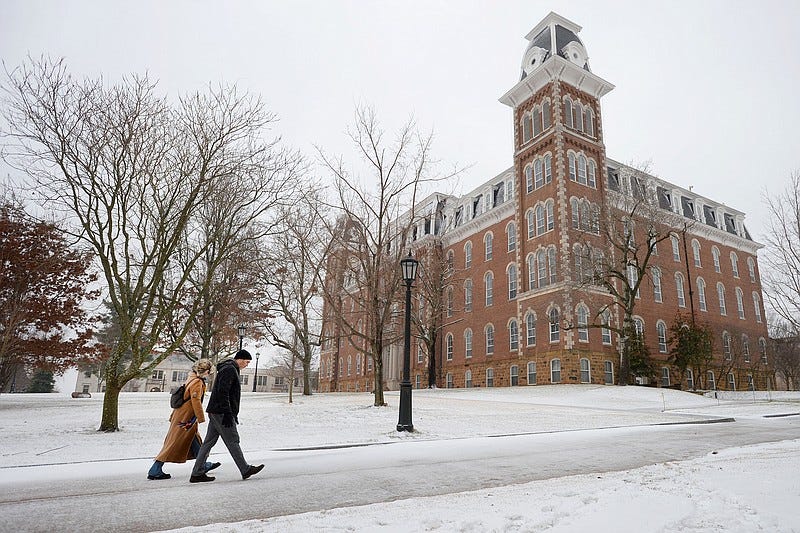I don’t normally share a lot of specifics from my own work outside of the monthly digest posts. I like to use this space for meanderings or one-offs that are fun for me to think about (and might even spark some conversation). But this week happens to be my favorite conference of the year, and I want to write a bit about that.
My wife and I are traveling to Harrisonburg, VA for the annual Ciceronian Society gathering. Last year’s meeting was in Plano, TX, which was a closer drive for me.
I’m giving two talks (which is highly unusual) and thought I’d share just a couple of snippets ahead of the conference.
My first panel is all about Plato, and I’m going to offer a few remarks about Plato, Aristotle, and loving literature. The idea is something I’ve been kicking around for a long time (ever since the 2018 ALA conference where it seemed most people speaking hated the very literature they were voluntarily talking about).
My second talk is on a panel about Classical Education, and I’m going to make the case (in 15 minutes or less) that classical schools should ignore calls to offer more “elective” courses. This is another concept I’ve been thinking about for a long time, since at least 2013, and I hope this will provoke some debate.
If you’ve been in classical education circles for long enough, you’re aware that we have some terminology issues. My own experience of fifteen years suggests that as classical education continues to grow, such a problem is only going to get worse. When I first discovered the classical education renewal movement was in 2010, just after the birth of my first son. When he had reached the tender age of six weeks old, I told my wife we needed to homeschool this child, and that I thought a classical model was the way to go. My first full time teaching gig at a classical-adjacent school began in 2012, and I transitioned in 2014 to a full-fledged ACCS accredited classical Christian school. I had no clue that I was entering a world where the only truly defining characteristic of the movement was its emphasis on personal shibboleths. I expected the classical school movement to be united behind a family of pedagogies or a focus on virtue, which were the things that drew me to this model of education, but I learned pretty quickly that idiosyncratic debates and internecine disagreements had a greater claim. If you’ve never worked in a classical school, then this probably strikes you as strange or even overblown. I promise you, it’s not. You can tell a lot about a teacher, an administrator, or a consultant by the timbre of their voice when they ask something like “does your school teach Latin or Greek?” Do they emphasize the conjunction or? Do they add the preposition in just before Latin? Or maybe they add “in which grades” before the question? This is only one example of such shibboleths, and I promise that trying to parse it (and all the others) in a conversation can make a person feel much like the Ephraimites trying to cross the Jordan River, though the consequence is likely derision rather than being slain with the sword (one hopes, anyways).
Even if you don’t find either of these arguments interesting, I simply cannot emphasize enough how much you will enjoy the Ciceronian Society and its events. If you didn’t make it in 2025, then 2026 is your year.





